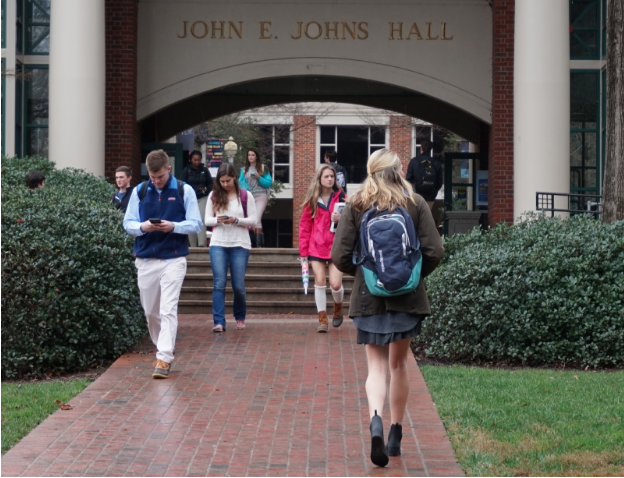By Kayla Wiles, columnist
Furman is hard – hard enough to concern Student Life that Furman students are not handling the stress as well as they should be.
Up until the summer of 2014 no data had shown exactly how stressed university students are or where their stress comes from, said Connie Carson, vice president of the Division of Student Life. Furman psychology professors have been tracking the class of 2018 to not only get a picture of university stress levels, but also identify ways to help students overcome that stress – what psychologists call “resiliency.”

Titled the “Fourtitude Study” (“four universities, four years, for you”), Furman’s research collaborates with three other universities – Davidson College, Duke University and Johnson C. Smith University – in the larger Duke Endowment Student Resiliency Project. The $3.4 million Endowment grant helps each of these schools to assess and improve student resiliency over a four-year period.
The most logical four-year period for analyzing college student stress, said psychology professor Beth Pontari, is “the natural trajectory from freshman to senior year.” The class of 2018 was just about to begin its summer orientation when the Fourtitude Study launched.
Pontari and two other psychology professors, Kerstin Blomquist and Cinnamon Stetler, worked with Student Life to design online surveys completed by a panel from the class of 2018 throughout their Furman career. The surveys are distributed during times of high stress – such as Greek life recruitment, midterms and finals – and ask students questions related to symptoms of anxiety, mood regulation, time management, healthy eating and exercise.
“We also look at stable personality traits in terms of how they predict a four-year experience,” Pontari said. “The idea is just to see the ebb and flow of the experiences [the students] are having.”
Branching off from the main surveys are focus studies where students from the panel are weighed periodically, examined more specifically for potential mental health issues and evaluated on sleep quality and stress levels. Stetler led the latter study during the students’ sophomore year, collecting data on the production of cortisol, a stress hormone, from hair samples.
“Cortisol is important to look at because it has a wide range of effects on the body, including on immune function, metabolism and cognitive function,” Stetler said. “Hair gives you a measure of cortisol over the past month or more.”
Stetler’s study found that students who reported stressors that involved embarrassment, rejection or shame had the highest cortisol levels, even though these types of stressors were not reported frequently. Cortisol levels were also higher following a semester at Furman compared to after summer vacation.
Out of all the stressors tested in the Fourtitude Study (academic, social, environmental, health and financial) the academic realm consistently tops the other categories as the main source of stress for students, Pontari said.
Knowing this, the psychology professors and Student Life plan to stage a five-week, online intervention that would teach students how to manage stress related to their coursework.
“This study is one of those rare instances where the faculty and staff are combining their expertise to benefit the students,” Pontari said. “That’s unheard of in the world of research and intervention. It’s also neat to be doing research in a place that translates back to where you’re doing the research.”
Carson also hopes that the findings from the Fourtitude Study will better connect students to resources on campus for emotional and mental health.
“If you think about the Furman Advantage, we can use that information to benefit the four-year pathway of a student and build on their strengths and weaknesses earlier,” Carson said.